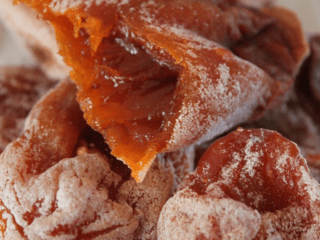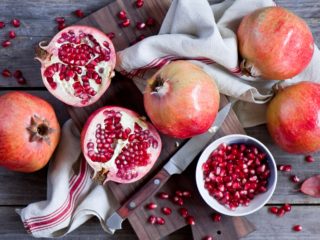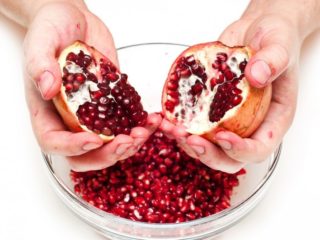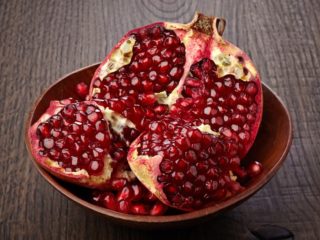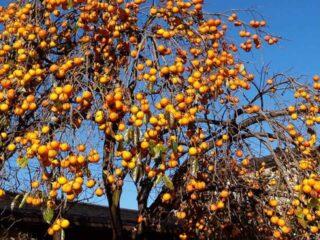Content
Swallowed a persimmon seed - this situation is unpleasant, but does not pose a serious danger. If you study the characteristics of large seeds, it becomes clear that they do not cause much harm.
Useful properties of persimmon seeds
Ripe persimmons contain 4-6 large oblong seeds, covered with tight-fitting viscous pulp. Usually, when eating the fruit, the seeds are spat out and discarded. But if desired, they can be used for medicinal and culinary purposes.
In former times, persimmon grains were used in several ways:
- For the production of flour. In the 19th century in the United States, during the Civil War and food shortages, the seeds of large berries were peeled, fried and ground into powder, and then used to bake bread.
- For preparing drinks. The seeds, which had been heavily roasted, were also crushed and brewed instead of coffee.
- For independent use. Lightly roasted seeds of ripe fruits were peeled and eaten like ordinary seeds.
Large persimmon grains do not contain toxic substances that can cause harm to the body. Of course, if you swallow them in large quantities, it will not bring any benefit.But it is impossible to be poisoned by a single seed from a ripe fruit.
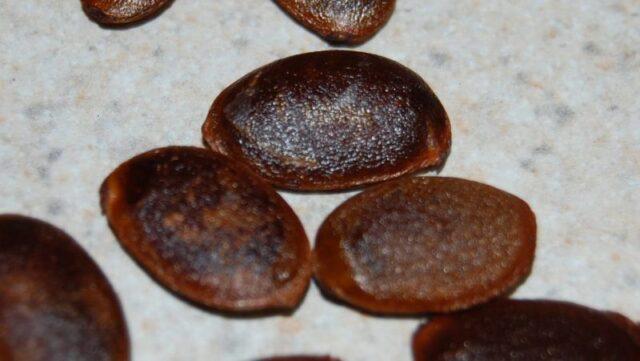
Persimmon grains, crushed into powder, can be used as a seasoning for first and second courses.
In modern cooking and folk medicine, grains are not particularly popular. However, it is known that the seeds:
- stimulate digestion and intestinal motility;
- help rid the body of waste and toxins;
- increase the absorption of vitamins and minerals supplied with other foods;
- improve intestinal microflora by eliminating pathogenic microorganisms.
It is not specifically recommended to swallow the seeds of the large sweet berry; for medicinal purposes they are usually used in crushed form.
What happens if you eat a persimmon seed?
The size of persimmon grains is comparable to that of watermelon; they are larger than apple and orange grains, but remain quite compact. If you swallow such a seed, then most likely it will not cause harm to the body. The product will simply pass through the entire digestive tract and be released in due time along with other toxins.
Swallowing the seed is dangerous only if you have chronic problems with the stomach and intestines. If a person suffers from ulcers or erosions, large grains can cause mechanical irritation of already damaged mucous membranes. It is possible that short-term pain and spasms may occur.
What to do if an adult swallows a persimmon seed
If an adult happens to swallow a persimmon seed, but there is no history of chronic diseases of the stomach and intestines, then no additional actions need be taken. The grain will leave the body on its own and will not cause harm.
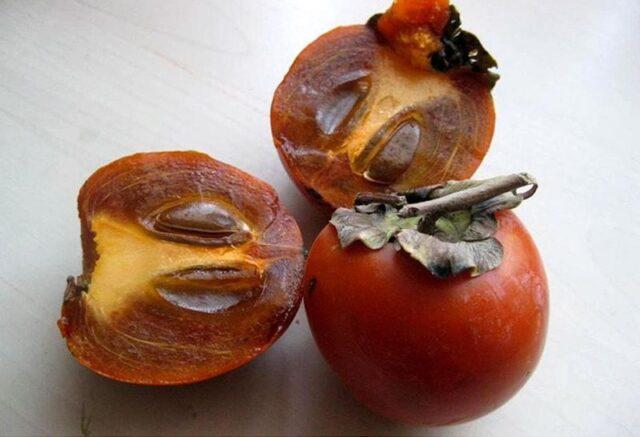
When eating persimmons, it is better to remove the seeds in advance, then in principle there will be no risk of swallowing them
But if your stomach already often hurts, you can ease and speed up the passage of a potentially dangerous seed. It is recommended to drink plenty of water - about 2-3 glasses in small sips. This stimulates digestion and will allow the seed to be eliminated from the body faster.
What to do if a child swallows a persimmon seed
Although a child's intestines are more sensitive than those of an adult, persimmon seeds usually do not harm him either. You can give your baby a large spoon of vegetable oil. It will lubricate the digestive tract from the inside, have a laxative effect and speed up the exit of the bone.
It is also necessary to take into account that hard grains are not digested by the body. If several days have passed and the whole seed has not passed out with the feces of a child or adult, you can consult a doctor, especially if you have abdominal pain.
Conclusion
Swallowed a persimmon seed - usually this situation does not require medical intervention or even specialized home measures. The grains do not have a toxic effect and normally leave the body on their own through the rectum.

